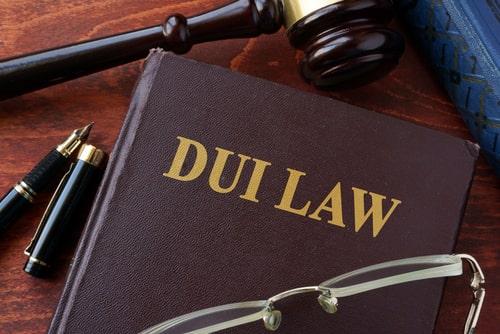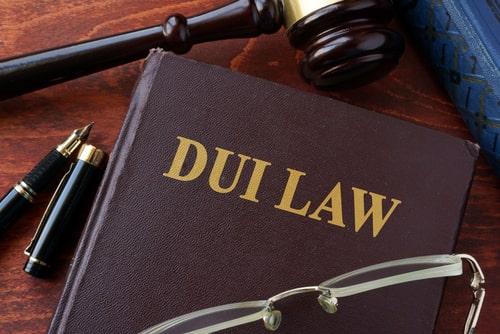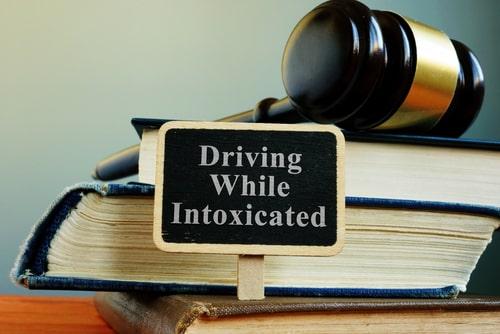2591 Dallas Parkway, Suite 207A, Frisco, TX 75034
Free Consultations
469-333-3333
 |
DO I HAVE TO GO TO TRIAL IN TEXAS? |
Recent Blog Posts
Understanding Kidnapping Charges in Collin County, Texas
 The term “kidnapping” may conjure images of someone taking a child and attempting to keep him or her from his or her home. However, kidnapping can involve children or adults. Furthermore, the circumstances that can lead to kidnapping charges may surprise you. Disputes about child custody or even family or romantic disagreements can sometimes lead to kidnapping allegations. Kidnapping is usually a state-level offense, but it is also possible for kidnapping to be a federal offense.
The term “kidnapping” may conjure images of someone taking a child and attempting to keep him or her from his or her home. However, kidnapping can involve children or adults. Furthermore, the circumstances that can lead to kidnapping charges may surprise you. Disputes about child custody or even family or romantic disagreements can sometimes lead to kidnapping allegations. Kidnapping is usually a state-level offense, but it is also possible for kidnapping to be a federal offense.
If you or a loved one were charged with kidnapping, contact an experienced criminal defense lawyer right away.
What Constitutes Kidnapping?
In order to convict someone of kidnapping, the prosecution must prove beyond a reasonable doubt that the person intentionally deprived another person of his or her personal freedom by:
- Hiding or holding the individual in a place they are unlikely to be found or
3 Reasons You Can Fail a Field Sobriety Test Completely Sober
 Texas law prohibits individuals from operating a vehicle under the influence of alcohol or drugs. If police officers see someone driving erratically, ignoring stop signals, or otherwise driving in an unsafe manner, the police may pull the person over and ask them to take a field sobriety test. Field sobriety tests involve completing some type of physical task while officers watch for signs of alleged intoxication. While field sobriety tests are generally considered to be reliable methods of determining a driver’s intoxication, there are many different issues that can cause a sober person to fail a field sobriety test.
Texas law prohibits individuals from operating a vehicle under the influence of alcohol or drugs. If police officers see someone driving erratically, ignoring stop signals, or otherwise driving in an unsafe manner, the police may pull the person over and ask them to take a field sobriety test. Field sobriety tests involve completing some type of physical task while officers watch for signs of alleged intoxication. While field sobriety tests are generally considered to be reliable methods of determining a driver’s intoxication, there are many different issues that can cause a sober person to fail a field sobriety test.
Obesity and Physical Health Problems
A significant portion of the population has a body mass index that puts them in the “obese” or “morbidly obese” category. For these individuals, completing field sobriety tests may be difficult or even impossible. The most common field sobriety tests include the one-leg stand, walk-and-turn test, and horizontal gaze nystagmus. The one-leg stand and walk-and-turn tests are supposed to assess the driver’s ability to balance. However, being significantly overweight or obese can make it much harder for people to balance and complete these tasks correctly.
THC, Delta 8, and CBD: Understanding Texas Drug Laws in a Rapidly Changing Landscape
 If you are like most people, you probably have questions about the legality of cannabis and cannabis-related products in Texas. Public opinion on cannabis has changed dramatically in the last several decades and more and more states are decriminalizing or fully legalizing marijuana products. In some states, only individuals with a valid medical marijuana card are permitted to possess and consume cannabis. In other states, any adult may possess a moderate amount of marijuana flowers, edibles, or other marijuana-containing products. Delta-8 products and CBD products are considered to be different substances than traditional cannabis. However, the legality of these products has also been subject to controversy and confusion.
If you are like most people, you probably have questions about the legality of cannabis and cannabis-related products in Texas. Public opinion on cannabis has changed dramatically in the last several decades and more and more states are decriminalizing or fully legalizing marijuana products. In some states, only individuals with a valid medical marijuana card are permitted to possess and consume cannabis. In other states, any adult may possess a moderate amount of marijuana flowers, edibles, or other marijuana-containing products. Delta-8 products and CBD products are considered to be different substances than traditional cannabis. However, the legality of these products has also been subject to controversy and confusion.
What is the Difference Between CBD, Delta 8, and Delta 9?
Cannabis is a plant that contains over 100 chemical compounds called cannabinoids. THC (tetrahydrocannabinol) is the component of marijuana that produces the psychoactive effects, or “high” marijuana is known for. However, other compounds in marijuana and hemp plants do not produce any psychoactive effects. CBD (cannabidiol) has been shown to help with certain medical conditions without producing the “high” of THC.
Can Someone Accidentally Shoplift by Making a Mistake at a Self-Checkout?
 The way we shop for groceries, household items, and other goods has changed dramatically in recent years. Before the technological advances of the last few decades, shoppers paid cashiers directly with either cash or credit cards. Self-checkout kiosks started gaining popularity in the 90s and early 2000s. Now, many stores have a greater number of self-checkout systems than human cashiers. Shoppers also have multiple ways to pay for their items including contactless credit cards and smartphone applications.
The way we shop for groceries, household items, and other goods has changed dramatically in recent years. Before the technological advances of the last few decades, shoppers paid cashiers directly with either cash or credit cards. Self-checkout kiosks started gaining popularity in the 90s and early 2000s. Now, many stores have a greater number of self-checkout systems than human cashiers. Shoppers also have multiple ways to pay for their items including contactless credit cards and smartphone applications.
It can be hard to keep up with all of these changes. Sometimes, a person may think that they paid for all of their items when they actually failed to pay for an item or underpaid for an item. In some cases, a simple mistake like this can even lead to criminal charges for shoplifting.
Is it Possible to Shoplift by Accident?
Consider the following scenario. A busy woman struggling to shop with her two young children uses a self-checkout machine to scan and pay for her items. As she is scanning items and placing them into the bags, she accidentally skips an expensive makeup palette. Not realizing her mistake, the woman places the items in the bags, pays for her items, and walks out of the store. As soon as she has exited the store, she is confronted by loss prevention staff and accused of stealing the makeup palette. Did the woman steal the makeup if she did not actually intend to leave the store without paying for it? Can the woman face legal consequences for shoplifting because of a simple mistake?
Rising Blood Alcohol as a Defense to DWI Charges in Frisco
 If you have been arrested and charged with driving while intoxicated (DWI), you may be facing criminal and administrative consequences that dramatically impact your life. DWI is typically a Class B misdemeanor offense punishable by fines, 3-180 days in jail, driver’s license suspension up to two years, and other serious consequences. However, certain circumstances can heighten DWI penalties and lead to increased jail time.
If you have been arrested and charged with driving while intoxicated (DWI), you may be facing criminal and administrative consequences that dramatically impact your life. DWI is typically a Class B misdemeanor offense punishable by fines, 3-180 days in jail, driver’s license suspension up to two years, and other serious consequences. However, certain circumstances can heighten DWI penalties and lead to increased jail time.
As someone accused of drunk driving, it is important to understand the defense strategies you may use to decrease or eliminate the consequences you face. In this blog, we will describe how the nature of blood alcohol content may be used as a valid defense against DWI charges.
Understanding How Alcohol Levels Rise and Fall Over Time
The amount of alcohol a person has consumed can be measured by evaluating the amount of alcohol in their body fluids or breath. The term “blood alcohol content” or BAC is the standard unit of measurement used to describe how intoxicated someone is. Having a BAC over 0.08 percent is considered legally intoxicated.
Advantages of an Attorney Writ Bond in Frisco, Texas
 Criminal defendants have rights protected by the U.S. Constitution. Among these rights is the right to know the charges laid against them. When someone is arrested for a crime, he or she is processed at booking. Next, the defendant goes to court for magistration. During magistration, the defendant’s bond is set. Unfortunately, the time period between an arrest and the meeting with the magistrate judge can take up to several days.
Criminal defendants have rights protected by the U.S. Constitution. Among these rights is the right to know the charges laid against them. When someone is arrested for a crime, he or she is processed at booking. Next, the defendant goes to court for magistration. During magistration, the defendant’s bond is set. Unfortunately, the time period between an arrest and the meeting with the magistrate judge can take up to several days.
An attorney writ bond allows a defendant to bypass the process of meeting with a magistrate. This can expedite the process of getting the defendant out of police custody. Only licensed attorneys may obtain an attorney writ bond.
A Writ Bond Gets the Defendant Out of Jail Sooner
Most individuals accused of crimes have jobs, children, or other responsibilities. They do not have time to spend time in police custody waiting to see a magistrate. One of the greatest benefits of an attorney writ bond is that it gets the accused individual out of jail sooner. For example, if someone is arrested on a Friday night, he or she may not see a judge until Monday morning. An attorney writ bond can speed this process up so that the defendant does not have to wait. With an attorney writ bond, a defendant may only have to wait a couple of hours instead of a couple of days.
What If I Lost My License But I Need to Drive to Work?
 Although work-from-home opportunities have increased after the pandemic, many adults still need to drive for their job. In the Collin County area, public transportation may not be sufficient for workers’ transportation needs. Consequently, losing your driver’s license can be a huge hindrance. If you lost your license due to charges for driving while intoxicated (DWI) and you work outside the home, you may be tempted to drive anyway. However, driving with a suspended or revoked driver’s license is considered a criminal offense punishable by heavy fines and a longer suspension period.
Although work-from-home opportunities have increased after the pandemic, many adults still need to drive for their job. In the Collin County area, public transportation may not be sufficient for workers’ transportation needs. Consequently, losing your driver’s license can be a huge hindrance. If you lost your license due to charges for driving while intoxicated (DWI) and you work outside the home, you may be tempted to drive anyway. However, driving with a suspended or revoked driver’s license is considered a criminal offense punishable by heavy fines and a longer suspension period.
Fortunately, many drivers charged with DWI are eligible for an Occupational Driver’s License or “essential needs license” which enables them to drive lawfully.
Regaining Driving Privileges After a Drunk Driving Charge
Understanding The “Probable Cause” Requirement in Illinois Criminal Cases
 Being charged with a crime can be confusing and overwhelming. If you or a loved one are facing charges for driving while intoxicated (DWI), drug possession, or another offense, you may have many questions. One issue that frequently arises in criminal defense cases is interpreting legal jargon and unfamiliar phrases. You may have heard that police need “probable cause” to make an arrest but are unsure exactly what this phrase means. Whether you are the person facing charges or a family member has been arrested, it is important to understand the rights afforded to criminal defendants.
Being charged with a crime can be confusing and overwhelming. If you or a loved one are facing charges for driving while intoxicated (DWI), drug possession, or another offense, you may have many questions. One issue that frequently arises in criminal defense cases is interpreting legal jargon and unfamiliar phrases. You may have heard that police need “probable cause” to make an arrest but are unsure exactly what this phrase means. Whether you are the person facing charges or a family member has been arrested, it is important to understand the rights afforded to criminal defendants.
Fourth Amendment Protections for Individuals Accused of a Crime
The U.S. Constitution offers many legal protections to criminal defendants. The Fourth Amendment establishes the “probable cause” prerequisite for arrests, searches and seizures, and search warrants. Probable cause means that officers have a reasonable belief that the law is being broken. Police and other government officials cannot conduct a traffic stop, arrest, or search without a good reason for doing so. Police may not assume that a person has committed a crime based on the way he or she looks or the neighborhood the person is in. Arrests cannot be made on a hunch or guess. Searches, seizures, arrests, and traffic stops must be justified.
Can You Get a DWI for Driving While High in Texas?
 Across the nation, many states are adopting marijuana use for medical and recreational purposes. However, marijuana use is still illegal in Texas. Furthermore, it is strictly against the law to drive while intoxicated by marijuana or cannabis. Marijuana can worsen a driver’s coordination and ability to concentrate. The drug also increases reaction time which means that it will take longer for the driver to react to dangerous conditions on the road such as a stopped vehicle or fallen truck cargo. For these reasons, driving while high on marijuana is against the law. Individuals who do drive high can be charged with driving while intoxicated and subjected to significant penalties.
Across the nation, many states are adopting marijuana use for medical and recreational purposes. However, marijuana use is still illegal in Texas. Furthermore, it is strictly against the law to drive while intoxicated by marijuana or cannabis. Marijuana can worsen a driver’s coordination and ability to concentrate. The drug also increases reaction time which means that it will take longer for the driver to react to dangerous conditions on the road such as a stopped vehicle or fallen truck cargo. For these reasons, driving while high on marijuana is against the law. Individuals who do drive high can be charged with driving while intoxicated and subjected to significant penalties.
Driving While Under the Influence of Marijuana
When we think of DWI charges, we usually assume that the driver was under the influence of alcohol. However, you can also get a DWI for drugged driving. For alcohol, the legal limit is 0.08 percent blood alcohol content (BAC). However, there is no legal limit when it comes to marijuana. Having any amount of marijuana in your system while operating a car can lead to DWI charges.
What Evidence May Be Used in a Collin County DWI Case?
 In Texas, a conviction for driving while intoxicated (DWI) can lead to significant penalties that have a considerable influence on the offender’s life. Even a first-time DWI conviction involves a three-day mandatory jail sentence. Second, third, or subsequent DWI charges can lead to even harsher consequences, including up to a year or more in jail. Driver’s license suspension, mandatory DWI education classes, probation, and a mandatory ignition interlock device are also potential consequences of a DWI conviction.
In Texas, a conviction for driving while intoxicated (DWI) can lead to significant penalties that have a considerable influence on the offender’s life. Even a first-time DWI conviction involves a three-day mandatory jail sentence. Second, third, or subsequent DWI charges can lead to even harsher consequences, including up to a year or more in jail. Driver’s license suspension, mandatory DWI education classes, probation, and a mandatory ignition interlock device are also potential consequences of a DWI conviction.
If you or a loved one were charged with drunk driving in Texas, contact a DWI defense lawyer for help. You may be able to avoid conviction by presenting a compelling defense founded upon supporting evidence.
Fighting For Your Freedom Using Strong Evidence
To convict someone of driving while intoxicated, the prosecution must prove that the defendant was drunk driving “beyond a reasonable doubt.” One of the best defense strategies is to demonstrate that there is reasonable doubt as to the defendant’s guilt. Examples of evidence that may be useful in a drunk driving defense case include:


 600+ DWI & CRIMINAL DEFENSE TRIALS
600+ DWI & CRIMINAL DEFENSE TRIALS
















